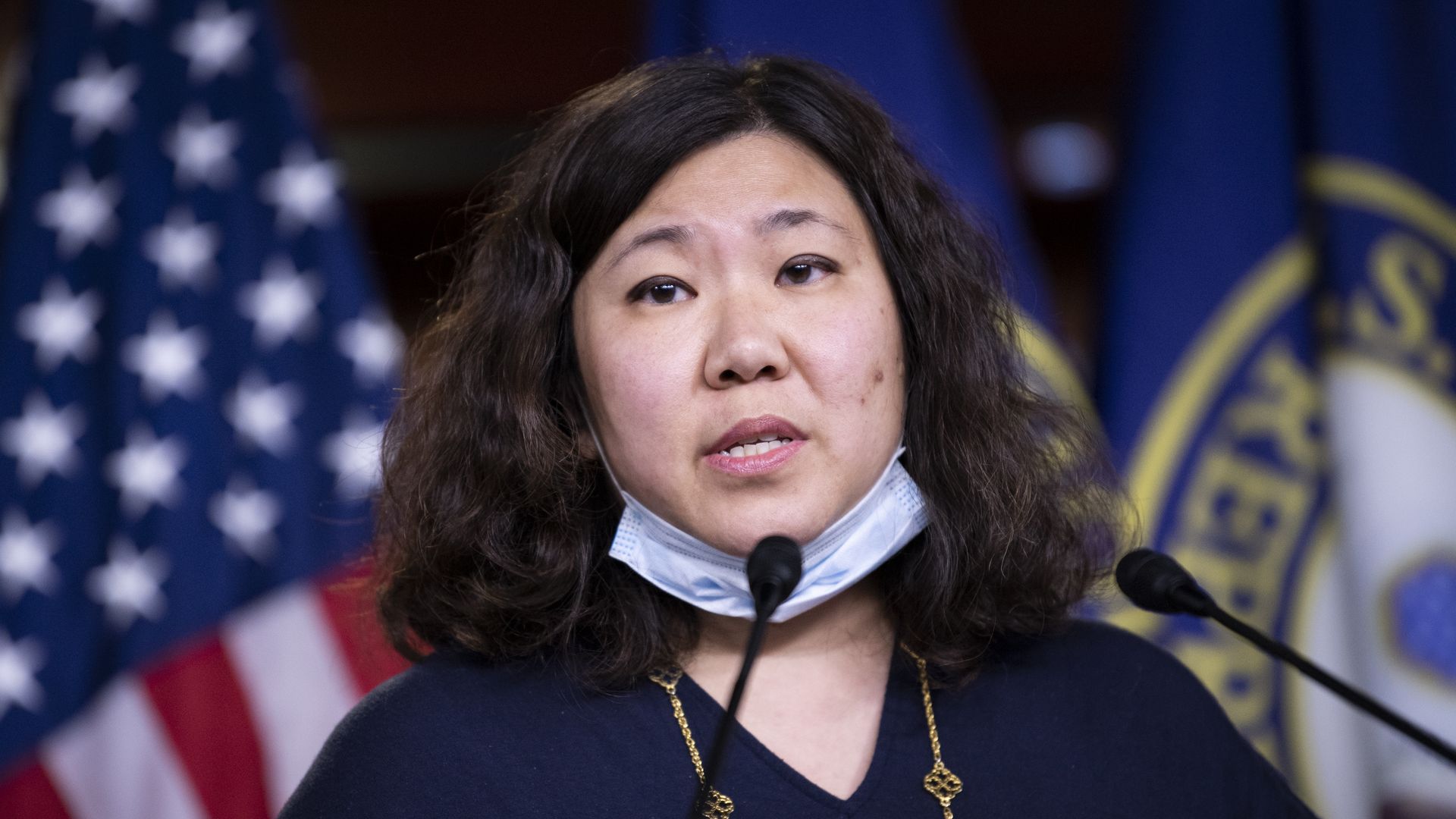Democratic Facebook ads tell users who voted against condemning anti-Asian racism
Add Axios as your preferred source to
see more of our stories on Google.

Rep. Grace Meng. Photo: Caroline Brehman/CQ-Roll Call, Inc via Getty Images
A new Facebook campaign by a political arm of the Congressional Asian Pacific American Caucus identifies the Republican lawmakers who voted against a resolution in September denouncing anti-Asian racism, NBC News reports.
Why it matters: A number of Republicans, including President Trump, have repeatedly used racist rhetoric like “China plague” and “kung flu” to refer to the coronavirus. Research shows that anti-Asian bias rose 800% after terms like "Chinese virus" rose to prominence in conservative media in March.
The state of play: The ads launched on Facebook target the districts of GOP lawmakers who voted against the resolution, which passed last month 243-164. Only 14 Republicans crossed party lines to support the measure.
- The campaign has already run in Texas and California.
Details: The resolution, sponsored by Rep. Grace Meng (D-N.Y.), “condemns all manifestations of expressions of racism, xenophobia, discrimination, anti-Asian sentiment, scapegoating, and ethnic or religious intolerance.”
- The resolution calls on public officials to denounce anti-Asian racism of any form and urges federal law enforcement to investigate reports of hate incidents. It also commits U.S. leadership to combat misinformation and disinformation that threaten Asian Americans.
- Meng received racist voicemails after the resolution passed.
The other side: "I will promise you this. There is no kitchen in America that thinks this is the priority," House Minority Leader Kevin McCarthy (R-Calif.), who has used the term “Chinese coronavirus,” said on the floor during the resolution debate, according to NBC News.
- "At the heart of this resolution is a served notion that referring to the virus as a ‘Wuhan virus’ or the ‘China virus’ is the same as contributing to violence against Asian Americans. Which I will tell you nobody on this side of the aisle supports.”
What they’re saying: UN experts criticized the U.S. in a mandate last week, writing that anti-Asian hate has reached an “alarming level” and that “authorities have utterly failed to take the steps required to detect, monitor, and prevent racist and xenophobic incidents."
By the numbers: 2,583 incidents of anti-Asian bias were reported to Stop AAPI Hate from March 19 to Aug. 5. In many cases, perpetrators used language akin to “China virus.”
Flashback: Asian Americans have been linked to disease and foreignness throughout their history in the United States.
What to watch: Asian American voters could prove to be the margin of victory in a number of swing states, experts say.
